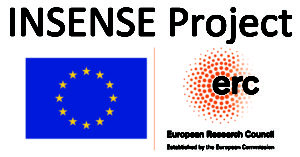New paper in Cortex
A paper based on work completed during Daniel’s very productive short sabbatical in Rovereto!
Motivation and short-term memory in visual search: Attention’s accelerator revisited.
Schneider, Bonmassar, & Hickey (2017, Cortex)
A cue indicating the possibility of cash reward will cause participants to perform memory-based visual search more efficiently. Thus if participants know there is money to be earned, they will be fast and accurate in finding a remembered object in a search display. A recent study has suggested that this performance benefit might reflect the use of multiple memory systems: when needed, participants can maintain the to-be-remembered object in both long-term and short-term visual memory and this redundancy benefits identification during search (Reinhart, McClenahan & Woodman, Psychological Science 2016, 27(6), 790-798). Here we test this compelling hypothesis. We had participants complete a memory-based visual search task involving a reward cue that either preceded presentation of the to-be-remembered target (pre-cue) or followed it (retro-cue). We tracked memory representation using two components of the ERP: contralateral delay activity (CDA), reflecting short-term visual memory, and the anterior P170, reflecting long-term storage. Results show that only the pre-cue impacted our ERP indices of memory. However, both types of cue elicited frontal ERP activity tied to reward processing, and both had equivalent impact on visual search behavior and associated ERP components. Reward prospect thus has an impact on memory-guided visual search, but this does not appear to be necessarily mediated by a change in visual memory representations. Our results demonstrate that the impact of reward prospect on search is not a simple product of improved memory for target templates.
